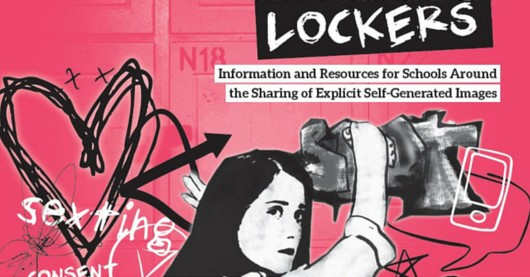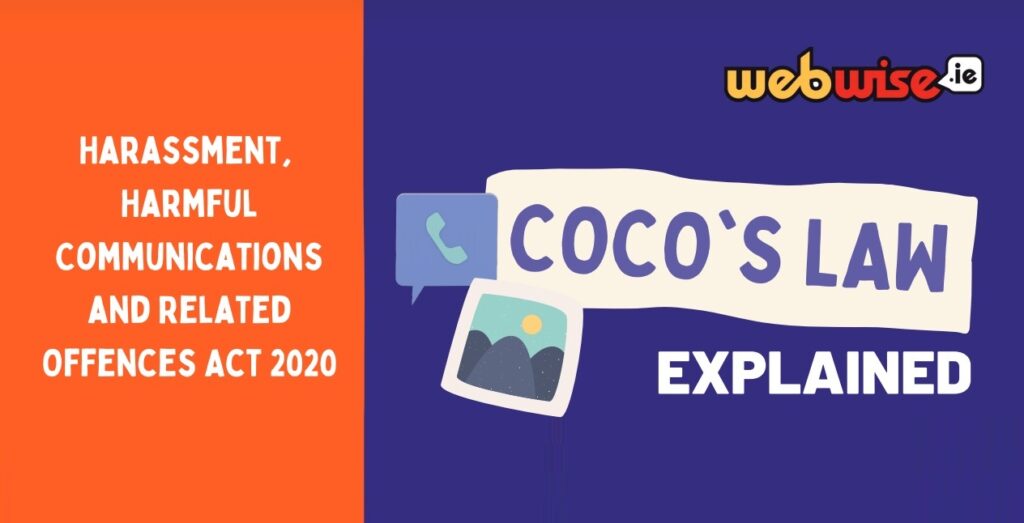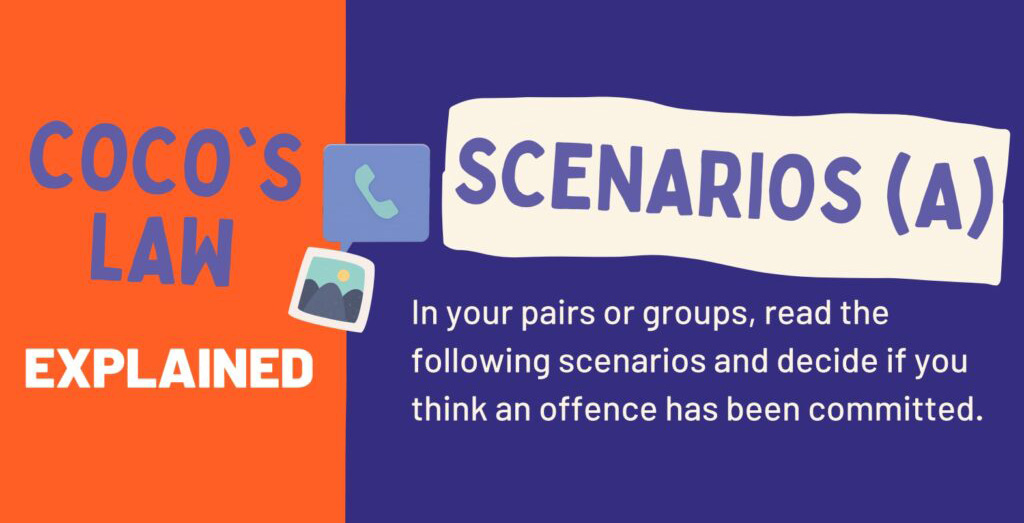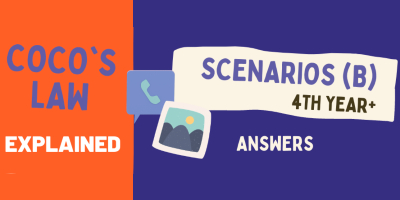Coco’s Law Lesson
Welcome to the What is Coco’s Law? Lesson.
About
Understanding the Harassment, Harmful Communication and Related Offences Act 2020 and the legal consequences of it for young people. This lesson is intended to be appropriate for the 3rd to 5th year demographic.
Students will be able to recognise the key offences under the Harassment, Harmful Communication and Related Offences Act 2020. Students will understand that their online actions have consequences for both themselves and others and that they are accountable for their actions. Students will feel empowered to speak up about online sexual harassment and know where to go for help if it occurs.
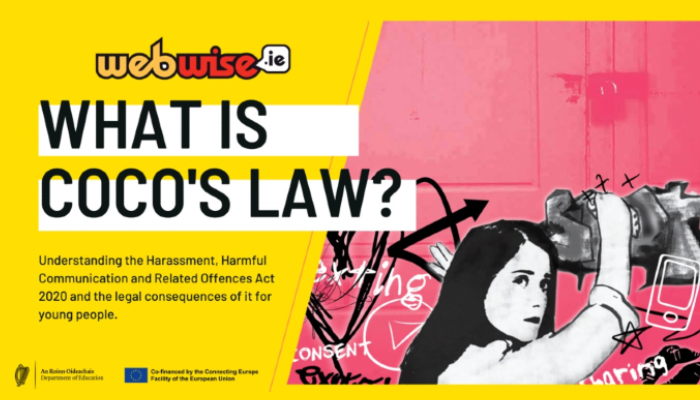
Using this Resource
What is Coco’s Law? Lesson. This resource is intended to support the delivery of the Lockers Junior Cycle resource on the topic of non-consensual sharing of intimate images, created by Webwise. This talk must be delivered in conjunction with those lessons, in order for this message to be effective. The aim of this visit is to reinforce the message that the making, taking, permitting to be taken, showing, possession and/or distribution of indecent images of minors is a criminal offence. The objective in delivering this talk is to try to prevent this behaviour from happening by empowering students with this knowledge.
This page contains information on preparing for the school visit, provides support materials to help deliver the talk and directs you where to find appropriate follow up information.
Background Information (Context, Prevalence and Legal Framework)
Before beginning the lesson read the background information provided in the Lockers resource including Legal Framework outlining Harassment, Harmful Communications and Related Offences Act 2020 also known as Coco’s Law (p.5-21).
Getting Started – Preparing for the lesson
This is a really sensitive topic and advanced preparation is essential.
1. Due to the sensitive nature of this material, teacher preparation before each lesson is essential. Inform the students of the upcoming topic that will be explored in class. This offers students the space to emotionally prepare themselves for this topic in advance. Students who may be affected by this lesson can share this with you, so that supports can be provided.
2. Check the students’ emotional state, before and after the lesson. This could be done by asking students how they feel about the topic about to be explored, before the lesson and by then asking if their feelings have changed at the end of the lesson. You could also use an ice-breaker game to check how students are emotionally. A simple game involves asking students what the weather is like with them. The students then describe their emotional state through a weather forecast (e.g. “There was a damp and dreary start to the day in Tom Town but things have started to pick up now and we might even get some sun in the evening”).
3. It is important that teachers are aware of the school’s Safeguarding Statement and Risk Assessment as well as the DE Child Protection Procedures and that they follow its procedures carefully in cases where students make sensitive disclosures in the SPHE class.
4. Know your students well and be aware of any possible issues they may have before teaching each lesson.
5. Be aware of all the supports available to you and to the students in your school. It is important to be well informed on the school’s Child Safeguarding Statement, Anti-Bullying Policy and Child Protection Procedures before teaching the lessons in this pack.
6. These lessons deal with sensitive issues that can impact on the wellbeing of students in your class. For this reason, it is advisable that teachers have completed the introduction to SPHE two-day course before delivering this programme.
7. Inform your students of the supports available to them and highlight how each support can be accessed. If necessary, arrange for introductions before lessons take place. The school should distribute the list of supports included in Appendix 2 (Lockers) and draw students’ attention to this resource.
8. Liaise with the guidance counsellor, pastoral care team or class tutor before embarking on this programme.
9. Leave time for debriefing at the end of the lesson. The suggested activities might sometimes take longer than indicated. Feel free to alter and omit activities to ensure that you address the specific needs of your class.
10. Discuss the content of these lessons with the SPHE team at your school. They may not all be trained in how to deliver these lessons or in how to teach SPHE.
11. Ensure that the principal and parents are aware of the programme and when it will be taught in school. As stated in the Education Act Section 30 2 (e) schools ‘shall not require any student to attend instruction in any subject which is contrary to the conscience of the parent of the student or in the case of a student who has reached the age of 18 years, the student’. A sample letter to parents is included in Appendix 4 of the Lockers resource.
12. Establish ground rules around classroom behaviour and etiquette before attempting to introduce the sensitive topics addressed in this programme. Sample ground rules are provided in the lesson.
13. Give students time to develop the level of emotional literacy needed to access all content. It is advised that this topic should not be introduced until after students have developed appropriate emotional-literacy skills.
14. Follow the guidelines on school visits (see Appendix 3 of Lockers) if inviting someone in to speak on the topics covered in this resource. There are people who speak on this topic but not all of them meet the standards of the Department of Education (DE), according to DE Circular 0043/2018.
15. Promote strong home/school links. Due to the amount of time young people spend online in the home environment, it is important to gain parents support in reinforcing appropriate behaviour online. Webwise provide additional supports to help parents talk with confidence to their children about the benefits and risks of the online environment, including Parent’s Guide to A Better Internet available to download at https://www.webwise.ie/ parents/.
Guidance on delivering the What is Coco’s Law? Lesson
It is important that:
1. The age demographic of the students is taken into account – this talk should not be delivered to 1st and 2nd year students, and should be toned down when delivered to 3rd year students.
2. This session does not happen in isolation but is a blended approach used to support materials already covered with the students from the Lockers Resource from Webwise.
3. This talk includes scenarios which cover sensitive issues, for 3rd years use the A scenarios provided for on slides 11-15 only. The B Scenarios are suitable only for 4th year and up.
4. We do not scare the students and just talk at them, but instead engage them in a discussion on this topic as much as possible, so as to help them understand the issues.
5. We engage the parents so that they too have the information necessary to support their children. The Webwise Parents Hub which offers free advice and resources for parents on a range of online safety topics including sexting, consent and respect online. Available at webwise.ie/parents.
Learning Outcomes
Students will be able to recognise the key offences under the Harassment, Harmful Communication and Related Offences Act 2020. Students will understand that their online actions have consequences for both themselves and others and that they are accountable for their actions. Students will feel empowered to speak up about online sexual harassment and know where to go for help if it occurs.
Curriculum Links
Students should be able to:
– 1.6: apply decision-making skills in a variety of situation.
– 1.9: appreciate the importance of respectful and inclusive behaviour in promoting a safe environment free from bias and discrimination.
– 3.5: Analyse relationship difficulties experienced by young people.
Senior Cycle Social Personal and Health Education.
– Examine the role of responsible social networking through virtual communication and its importance for young people.
– Explain what sexual harassment is and discuss the law as it relates to online sexual harassment.
Resources needed
– Computer and Overhead projector with sound.
– PowerPoint presentation
– Copies of Appendix 4 – One for every two people.
– ‘No Excuses’ Intimate Images Video: https://www.youtube.com/watch?v=I7yQcyPWu8M
Things to consider
– Ensure you have read the guidelines and background information prior to the session.
– Check that the ground rules are in place.
– Highlight that if there are any disclosures indicating abuse of underage sexual activity you are obliged to report the incident.
– Avoid discussing cases familiar to the students, focus discussion on the scenarios presented in the lessons.
– Take the time to outline the supports available to students (both inside and outside school), should they be affected by any of the issues discussed in the class and need to talk to someone.
– Presentation and Script

Coco’s Law Lesson Presentation
The What is Coco’s Law? Lesson has a full presentation, including teacher’s script, and supporting materials.
Supporting Materials
‘No Excuses’ Intimate Images Awareness Campaign
Public Awareness campaign from the Department of Justice Ireland highlighting the issue of sharing intimate images without consent. This short advert, part of the ‘No Excuses’ campaign, seeks to inform audiences of the recent changes in legislation in Ireland which criminalises the sharing of intimate images without consent.
Lockers Resource
Lockers is an information and education resource, it assists schools in coping with and preventing the sharing of explicit self-generated images of minors.
Intended for use with Junior Cycle SPHE classes, Lockers is supported by two animations and six lesson plans.
Also included in Lockers is an information section for school leaders.
